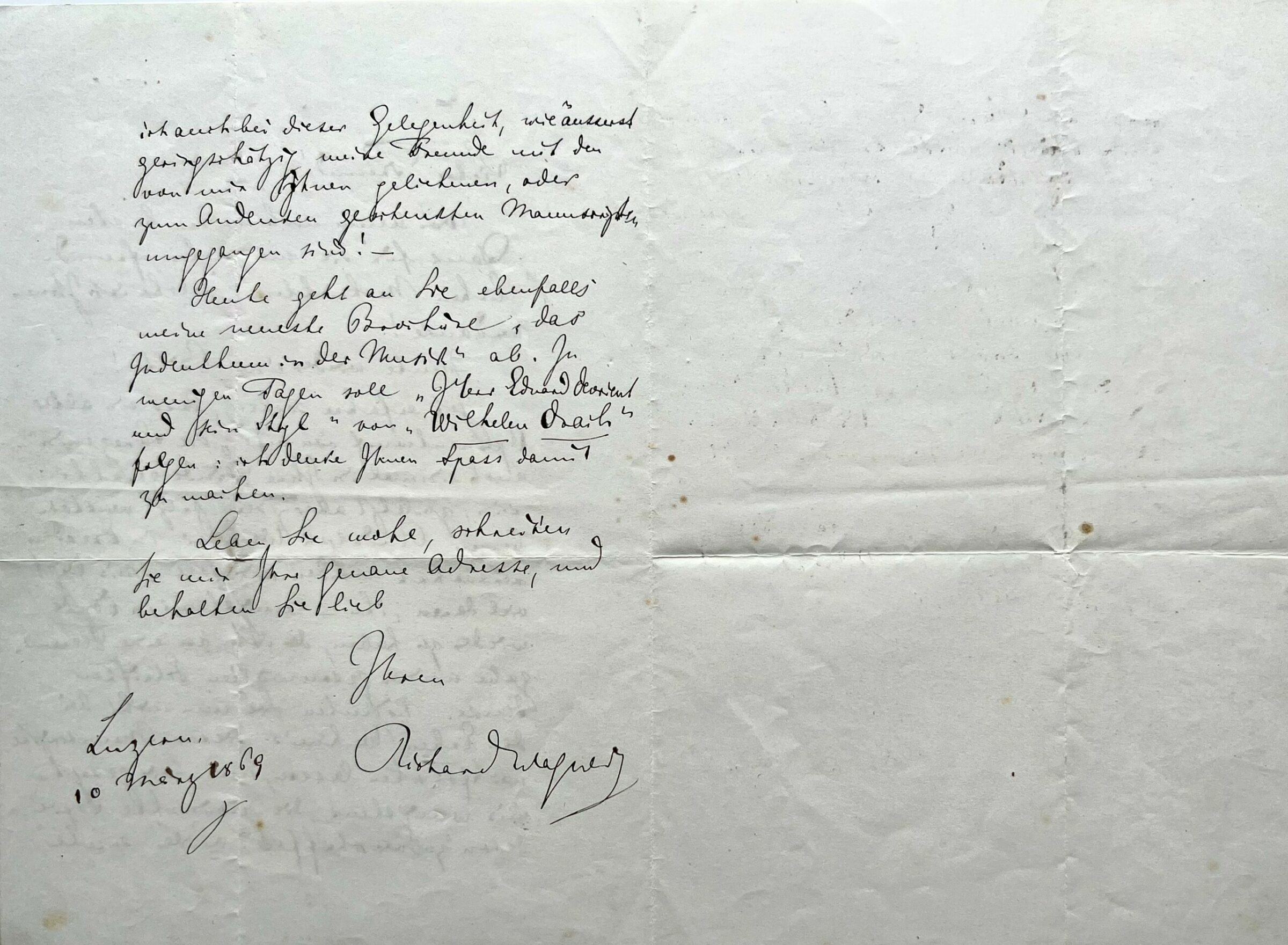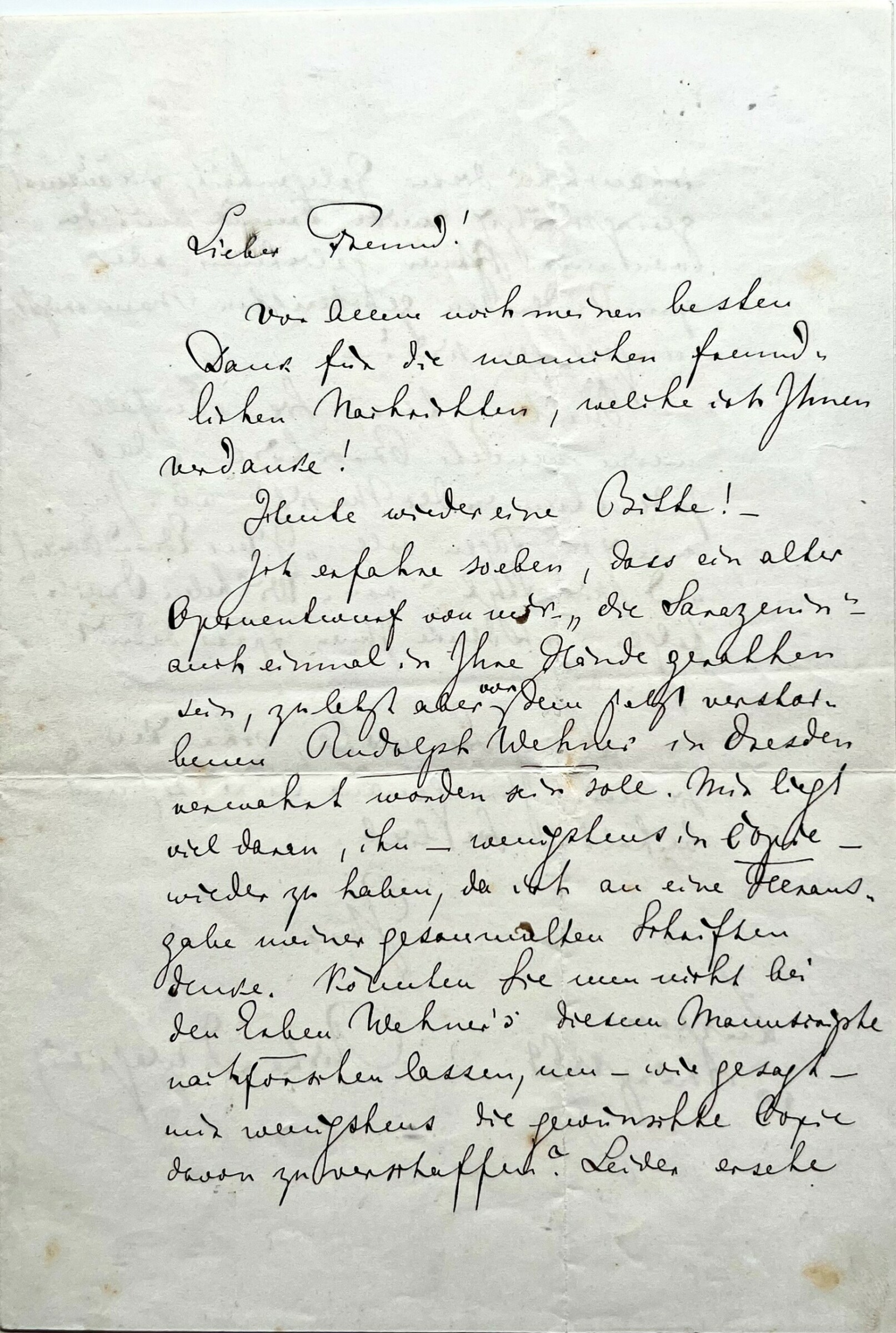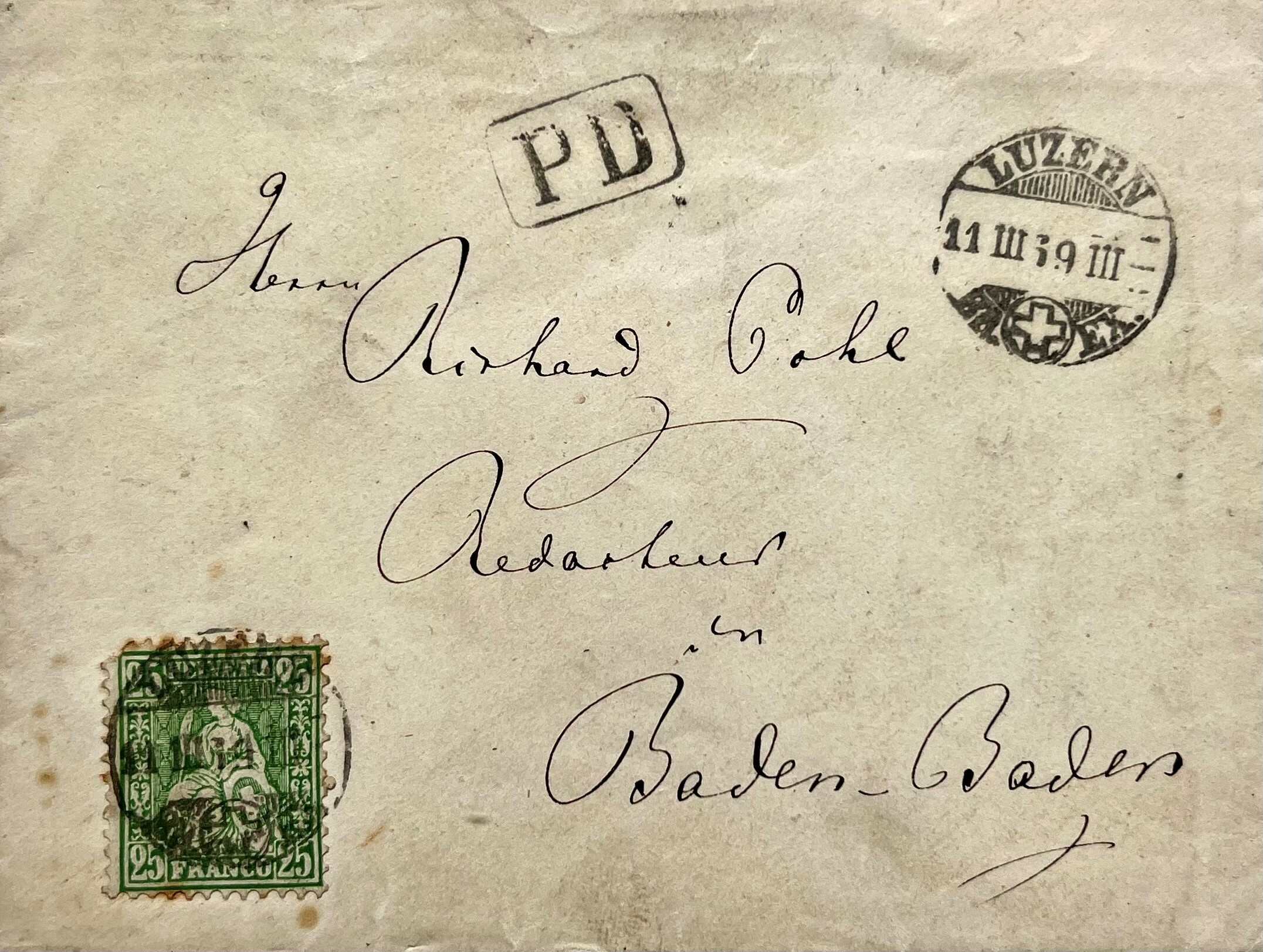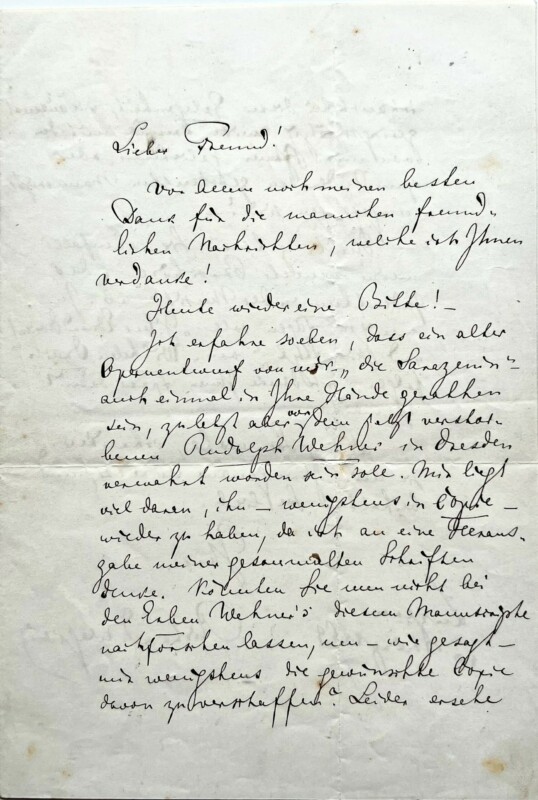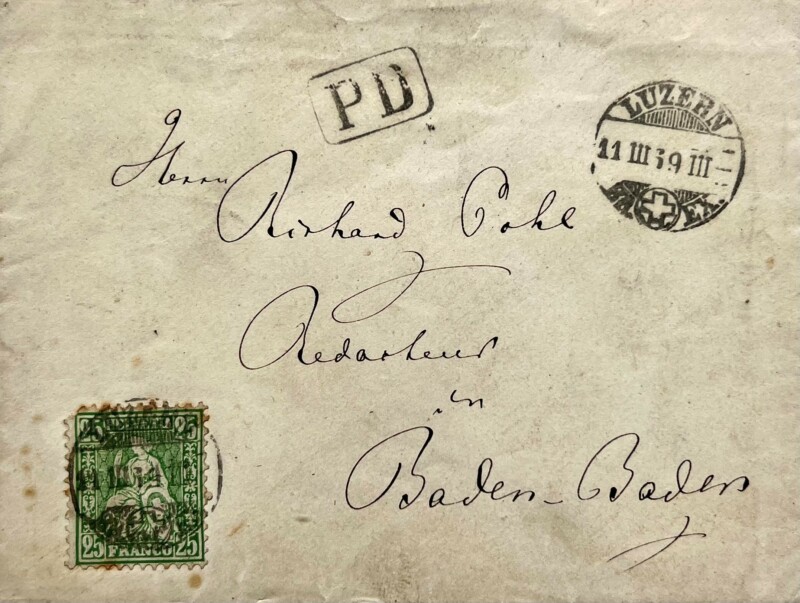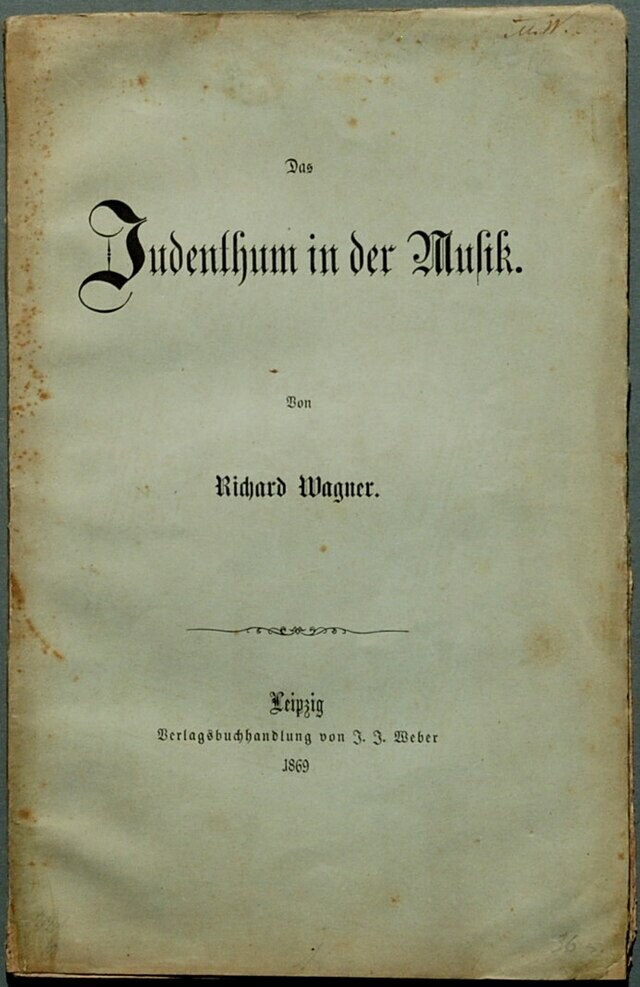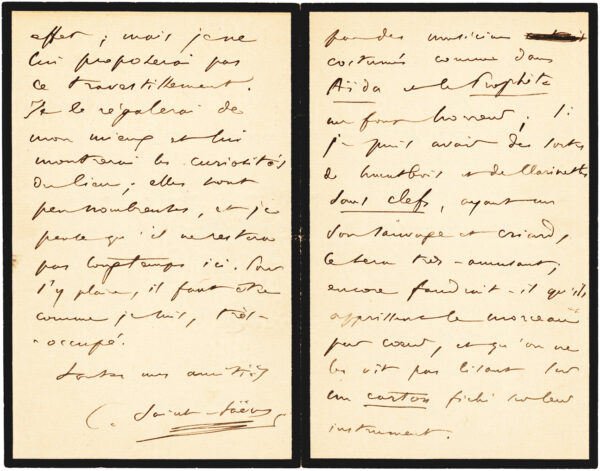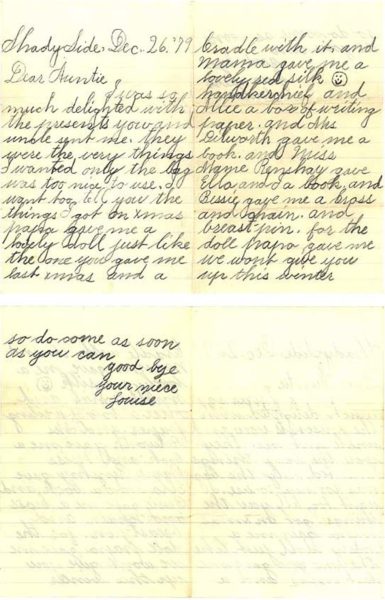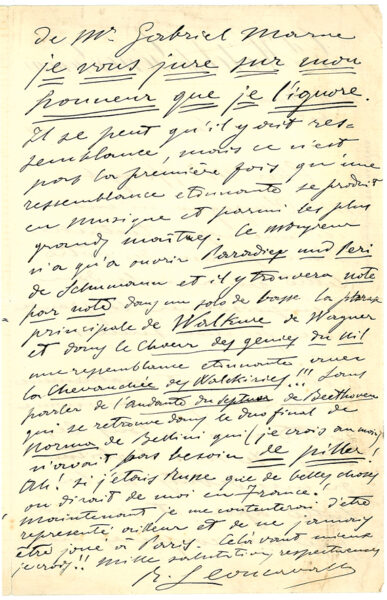WAGNER, RICHARD. (1813-1883). German composer; creator of several of the greatest operas of all time, including Götterdämmerung, Tristan und Isolde and Der Fliegende Holländer. ALS. (“Richard Wagner”). 2pp. 8vo. Lucerne, March 10, 1869. To German music critic, poet and composer RICHARD POHL (1826-1896). In German with translation.
“First and foremost, I owe you my grateful thanks for the many friendly notes. Today I again have a favor to ask! I have just learned that an old draft of an opera of mine, Die Sarazenin (The Saracen Woman), once fell into your hands, but was last said to have been kept in Dresden by the late Rudolph Wehner. It is very important to me to have it back – at least a copy of it – since I am considering a publication of my collected writings. Could you perhaps ask Wehner’s heirs to investigate the whereabouts of this manuscript, in order – as I said – to at least procure for me the desired copy of it. Unfortunately, I also see on this occasion how extremely disdainful my friends have been with the manuscripts lent to them by me or given to them as keepsakes! Today my latest brochure Judaism in Music will also be sent to you. In a few days ‘Mr. Edvard Devrient and his style’ by ‘Wilhelm Drach’ will follow: I think you will enjoy it. Farewell, write me your exact address, and remember your dear friend…”
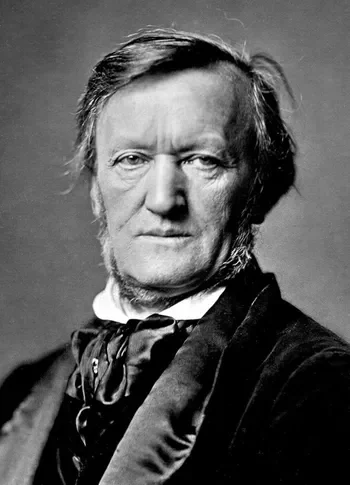
Richard Wagner
In 1865, Wagner’s patron, Ludwig II, expressed an interest in reading the story of the composer’s life. Wagner began writing Mein Leben almost immediately, dictating it to his wife, Cosima, and completing the fourth and final volume in 1880. But before he finished the multi-volume work, he sought the assistance of his young admirer and frequent visitor, philosopher Friedrich Nietzsche. In fact, Wagner “entrusted him with what could have been the anything but easy task of arranging for the printing of his autobiography by the Basel printer Bonfantini and taking charge of the proofs. It was on the 3rd of December, 1869 that Wagner sent him the first batch of manuscripts,” (The Life of Richard Wagner Volume IV 1866-1883, Newman). Bonfantini published volumes 1-3 of the autobiography in a limited edition of 18 copies for distribution to Wagner’s friends. Most of the copies were later returned to Cosima and destroyed after the composer’s death.

